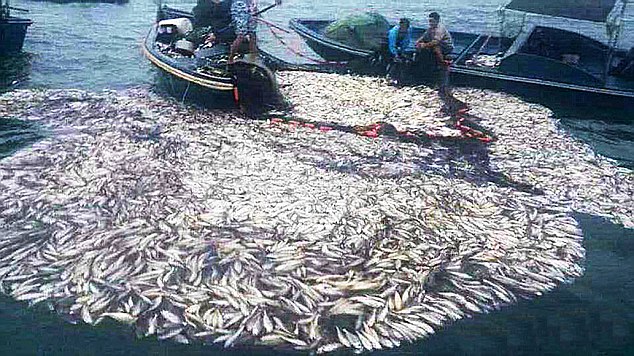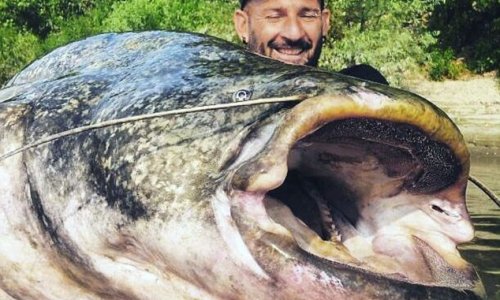So-called 'blast fishing' is outlawed in many countries because of the destructive and unpredictable effect it can have on the marine ecosystems that support fish stocks.
But the practise is nonetheless thriving in Dayawan Bay, by the city of Huizhou, on the South China Sea coast of Guangdong province, south-east China. Visitors there can even pay to go out with the fishermen and throw a few bombs in the water themselves.
These pictures, taken in an area described by travel guides as 'an unpolluted, quiet paradise for sea-lovers', show fishermen hurling explosives into the water to stun or kill fish.
Their target in these snaps are yellow croakers that they head out to catch every November. But the explosions also kill other sea life in the area and severely damage the underlying habitat.
Underwater shockwaves from the explosions stun fish and rupture their swim bladders - the tiny gas-filled organs that help fish to control their buoyancy.
The rupturing causes an abrupt loss of buoyancy, so while a small number of fish float to the surface, many more sink to the sea floor, where they join any other marine organisms indiscriminately killed by the blasts.
Now the irresponsible practise has also become a tourist attraction.
Horrified angler Liau Xiou, 32, who unwittingly signed up to a trip in Dayawan Bay, said: 'We saw an advert promising 'fishing action'.
'We assumed it meant fun and paid the 30 GBP to have a go.
'We'd been out for about 30 minutes when the men told us they were going to feed the fishes.
'They were laughing and stuffing the bottles with powder and what looked like stones.
'They then threw them overboard and just seconds later there was a huge serious of explosions.
'And then all these dead fish appeared floating on the surface which the fishermen hauled in with nets.
'I was absolutely disgusted and shocked beyond belief.'
A spokesman for the Chinese Fishery Bureau said: 'These fishermen make most of their money from taking tourists out to watch them at work.
'We are attempting to crack down on it though.'
(dailymail.co.uk)
ANN.Az
Follow us !









